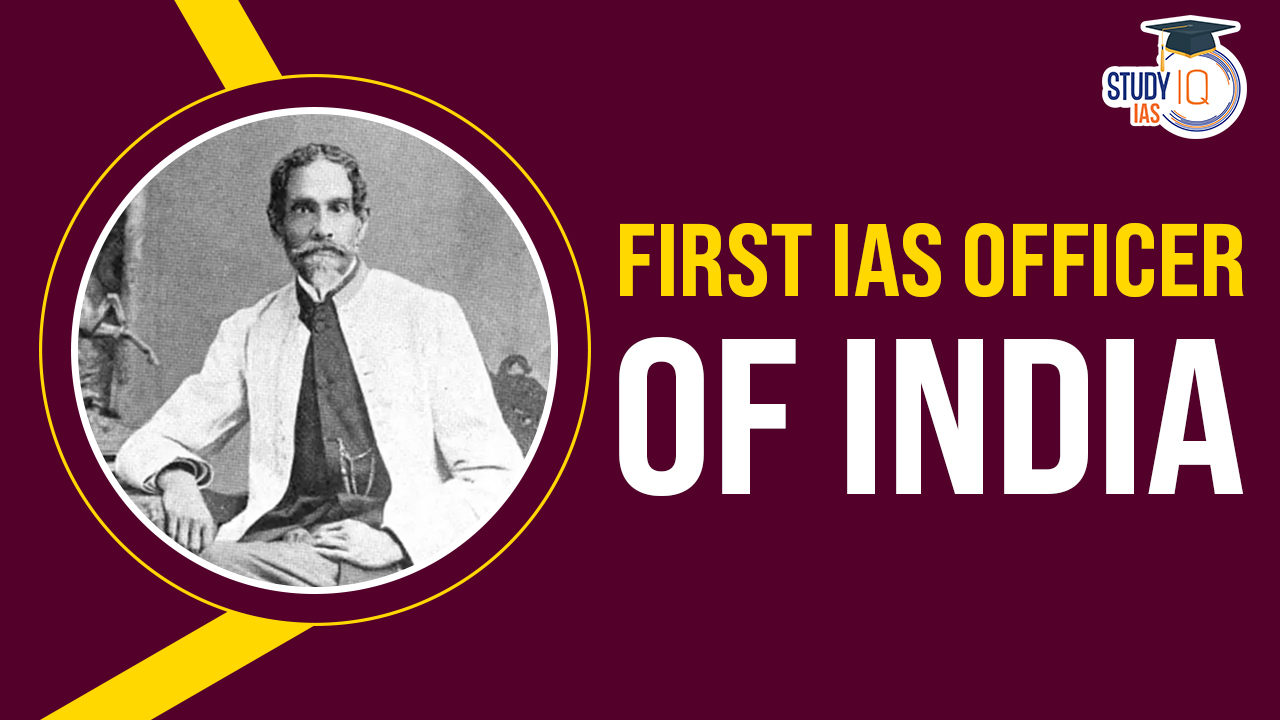Table of Contents
The First IAS Officer of India was Satyendranath Tagore, who was appointed in 1863 during British colonial rule. He joined the Indian Civil Services, also known as ICS. He comes from the renowned Tagore family of Kolkata. He significantly aided in the emancipation of women in Indian society during the British Raj. He was the Brother of Rabindranath Tagore, the Nobel Prize for Literature
Who is the First IAS officer in India?
The First IAS Officer of India was Satyendranath Tagore. He made significant contributions to society. He took several actions to advance women’s rights in Indian culture. Tagore’s contributions extended to education, advocating for literacy and social welfare. Tagore was a writer, lyricist, and linguist. His legacy as a writer and thinker further enriches his pioneering role in establishing the Indian Administrative Service, inspiring generations of civil servants to serve with integrity and diligence.
| Name | Satyendranath Tagore |
|---|---|
| Birth | 1842 |
| Appointment as IAS | 1863 |
| Contribution | Shaped bureaucracy during British rule, advocated for education and social welfare |
| Legacy | Pioneering role in establishing the Indian Administrative Service, inspiration for future civil servants |
Early Life and Education
On 1 June 1842, Satyendranath Tagore was born in Jorasanko in Calcutta. Satyendranath Tagore was born to Maharshi Debendranath Tagore and Sarada Devi. He was born into the renowned Tagore family as the second eldest son. He grew up in a lot of culture and history, and his family was a great influence in the state. His younger brother was poet and writer Rabindranath Tagore, who also went on to win the Nobel Prize. He received his education at Presidency College, Kolkata, before embarking on his journey into the Indian Civil Service.
Also, Read How to became IAS Officer Here
Appointment as the First IAS Officer of India
In 1863, Satyendranath became the first IAS Officer of India, but the journey was not easy. Indian Civil Service was restricted to Indian Candidates during the British Rule. In 1861, the Indian Civil Service was established. Indian candidates had to travel to England to compete with their British peers. Monomohum Ghose, a friend of Satyendranath’s, played a crucial role in encouraging him. He was appointed to the Bombay Presidency with a duration of 30 years as an IAS Officer. He also served as a judge in Satara until his retirement in 1897.
Also, Check IAS Salary
Contributions and Achievements
- Literature and Poetry: Tagore was a prolific writer and poet, contributing significantly to Bengali literature and culture with works like “Sushila O Birisingha,” “Bombai Chitra,” and “Nabaratanamala.”
- Social Reformer: As a member of the Brahmo Samaj, Tagore actively advocated for women’s rights and empowerment, contributing to social reform movements in Indian society.
- Linguist and Composer: His linguistic prowess was evident in his compositions, with his Bengali language song “Mile Sabe Bharat Santan, Ektan Gago Gaan” often regarded as one of the first Indian anthems, resonating with patriotism and unity.
Also, Check UPSC Syllabus 2024
Legacy and Significance
Satyendranath Tagore’s legacy extends beyond his administrative achievements. His contributions as a linguist, writer, composer, and advocate for women’s rights continue to inspire future generations of civil servants. The IAS holds a crucial position in India’s bureaucracy, with officers playing pivotal roles across government bodies, regulatory agencies, and public sector organizations.
Also, Check UPSC Age Limit


 World Intellectual Property Day 2025, Th...
World Intellectual Property Day 2025, Th...
 World Malaria Day 2025: Date, Theme, His...
World Malaria Day 2025: Date, Theme, His...
 World Immunization Week (24 to 30 April)...
World Immunization Week (24 to 30 April)...





















